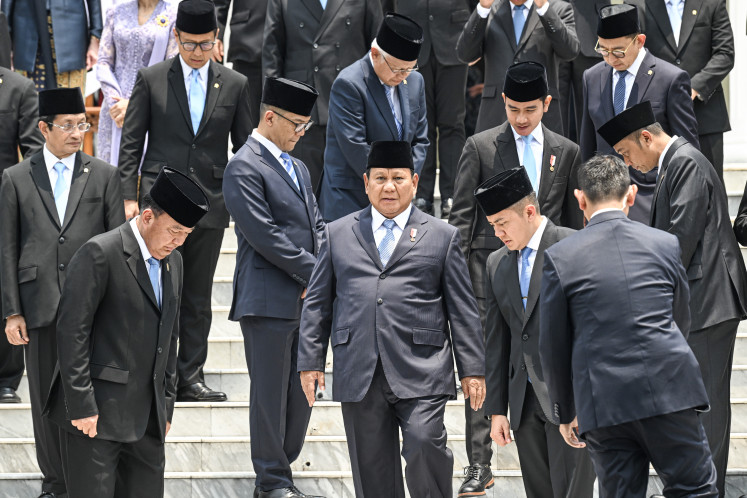Popular Reads
Top Results
Can't find what you're looking for?
View all search resultsPopular Reads
Top Results
Can't find what you're looking for?
View all search resultsDisputed Iran elections
According to the Iranian government, 84 percent of voters turned out to cast their ballots in Iran's presidential election last Friday, a remarkable achievement for a direct election
Change text size
Gift Premium Articles
to Anyone
According to the Iranian government, 84 percent of voters turned out to cast their ballots in Iran's presidential election last Friday, a remarkable achievement for a direct election. With around 63 percent voting for Mahmoud Ahmadinejad and 34 percent for his main challenger, Mir Hossein Mousavi, it is clear most Iranians still favor the incumbent president and wish for him to lead their oil-rich nation once again.
We should congratulate President Ahmadinejad for this outcome, but also question his commitment to democracy, with his victory marred by the arrests of more than 100 protesters on Saturday. Some have since been released.
Another controversy has arisen surrounding the election process, with the defeated challenger Mousavi claiming he was prevented from appearing in public because he was placed under house arrest. This claim has not been verified by the Iranian government.
The issue at the heart of the protests was undoubtedly the legitimacy of the election results. A number of pre-election surveys suggested Mousavi would either win outright by garnering more than 50 percent of the votes, or that he and Ahmadinejad would go head-to-head in a second election next week.
It is indeed the protesters' right to question the election results, but perhaps people should consider the objectivity of these surveys. Perhaps those conducting the polls should look at the results and critique their sampling methods, as the polls were urban-biased while Ahmadinejad has strong support in rural areas.
Such an independent survey would not only provide realistic pre-election predictions, but also more accurately hint at whether an election is fraudulent or not.
Now that his victory has won the blessings of Iran's supreme leader Ayatollah Ali Khamenei, Ahmadinejad should begin reconciling with those who opposed his victory - namely by releasing protesters and being less retaliatory to criticisms in the future.
Ayatollah Ali Khamenei, who controls the real power in Iran, should exercise wisdom in observing all political developments in the Islamic republic. He could play a pivotal role in promoting democracy in Iran and take the initiative to change things in a country that needs to keep pace with the changing times.










